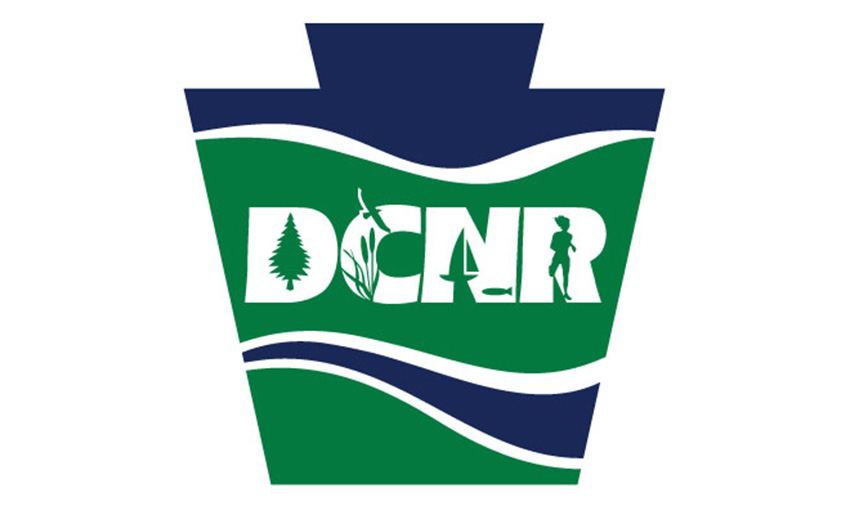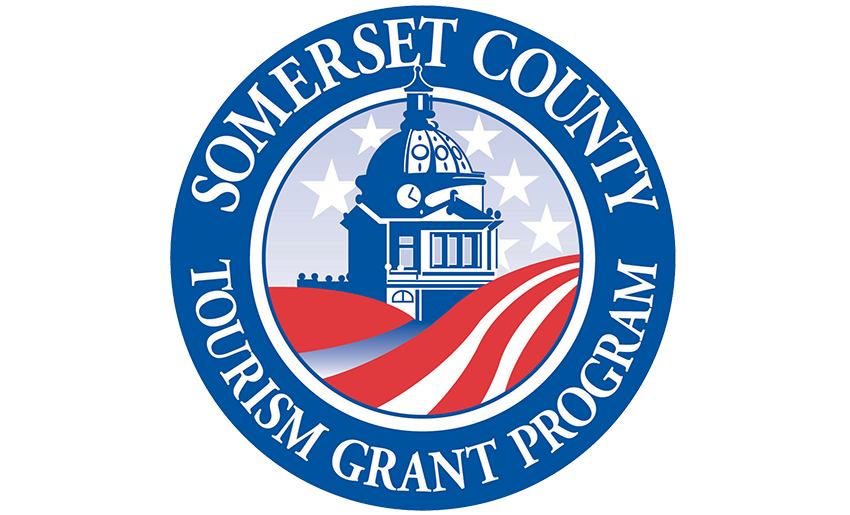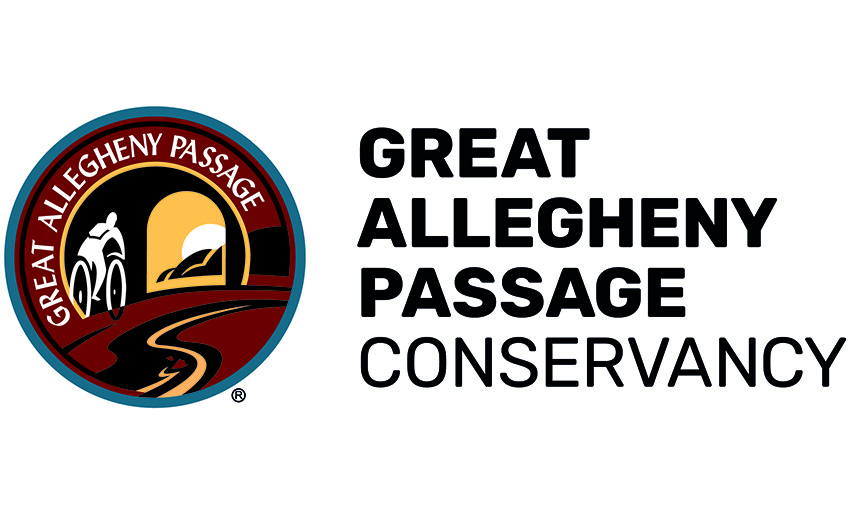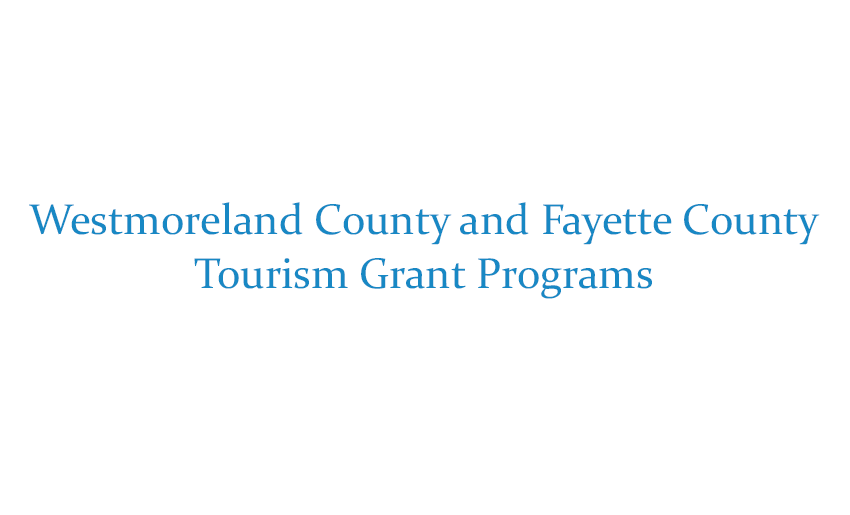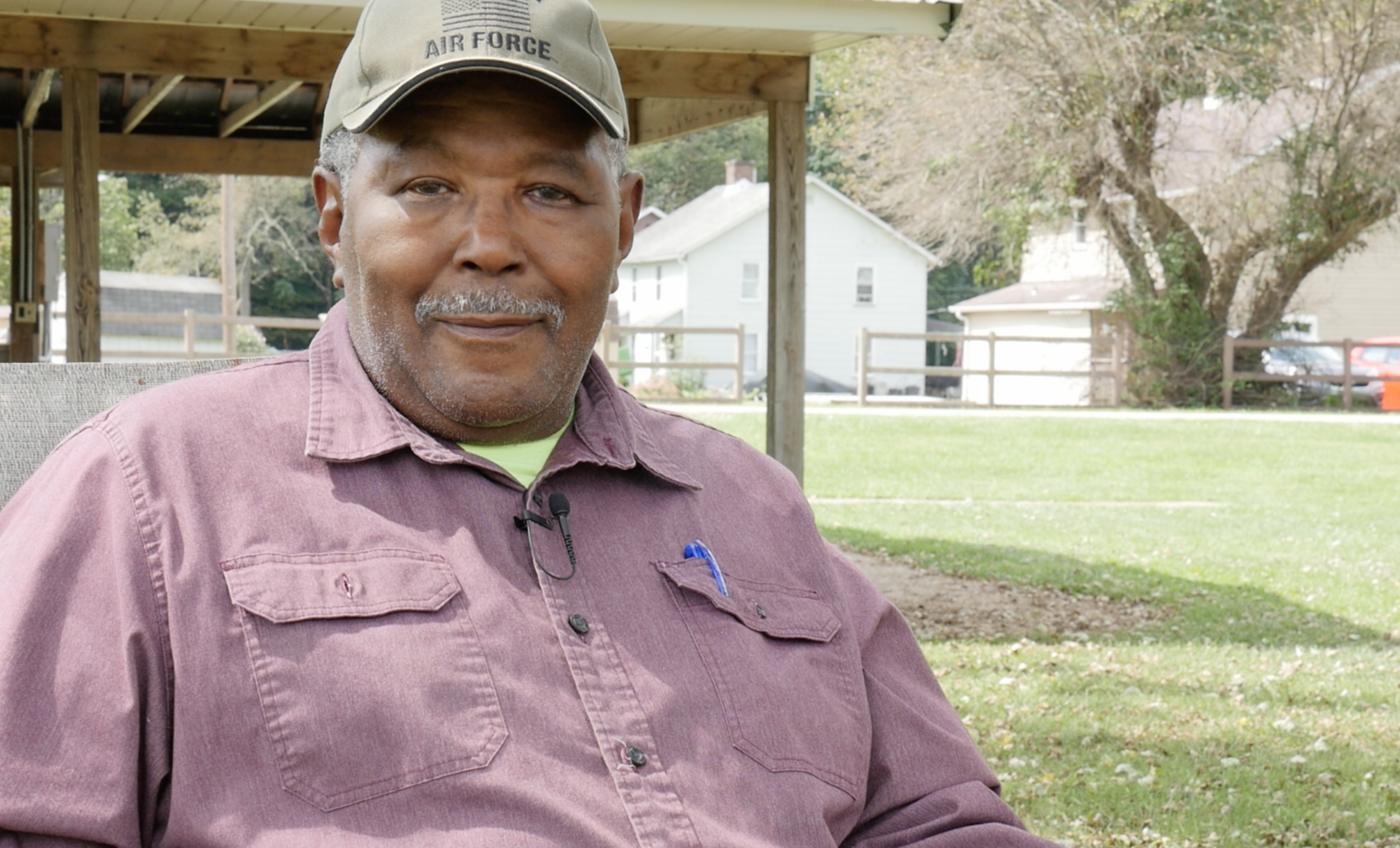“I’ve been a biker since I got out of the military in 1967 and when they started talking about the trail, it was a no brainer for me. Had to do it, had to help, had to make sure it got completed, you know, at all costs. And it’s paid off.”
“I love the river. I love the woods. I love the quietness.
“Whitsett has always been a great town to me. You’ve got to understand the history of coal mining towns. They didn’t have any indoor plumbing. There were outhouses. They had houses where they burned coal in the furnaces. There were no paved streets, they were red dog streets. But to me, growing up, it was heaven
“Whitsett was my destination after the military. It always had been.
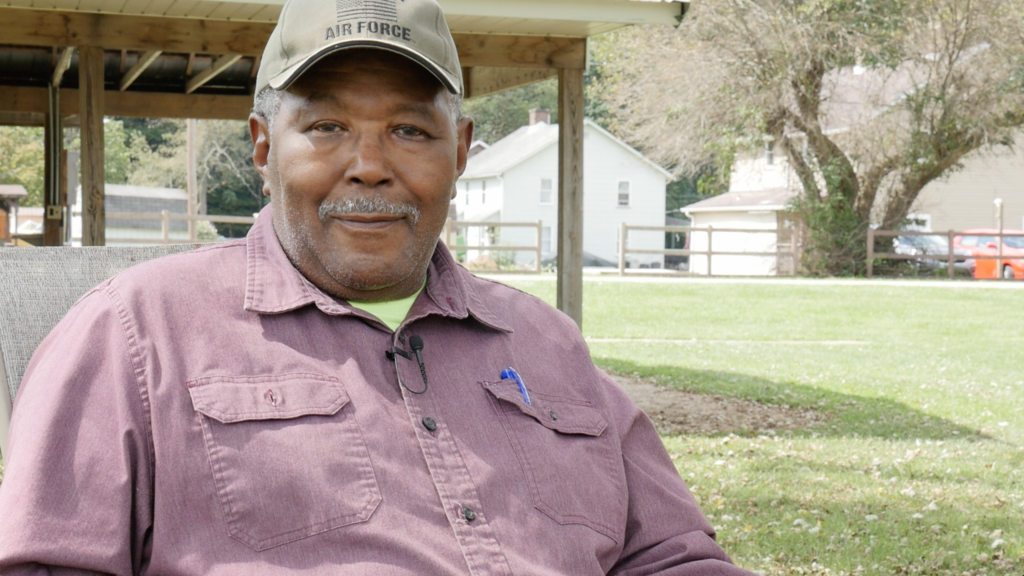
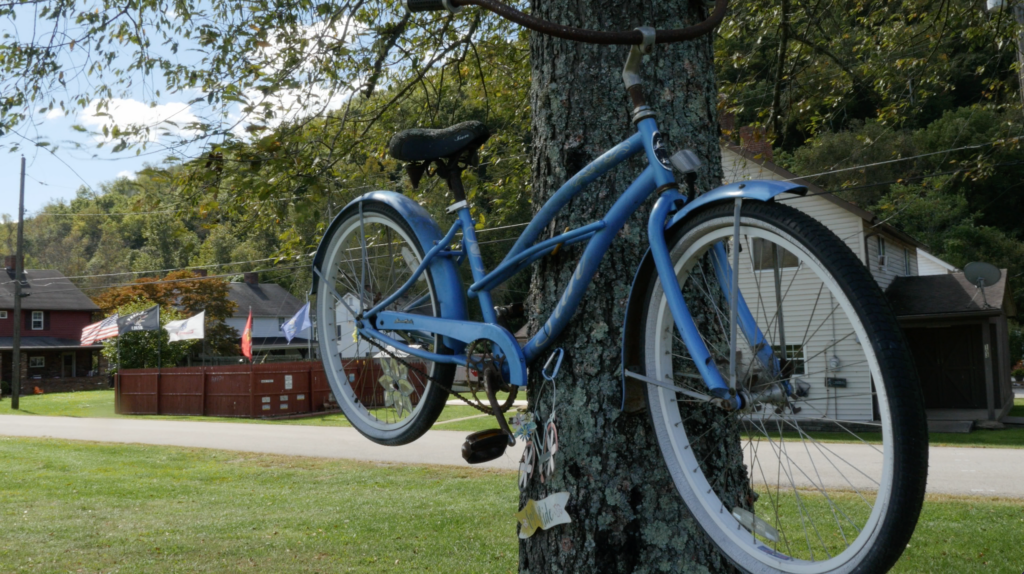
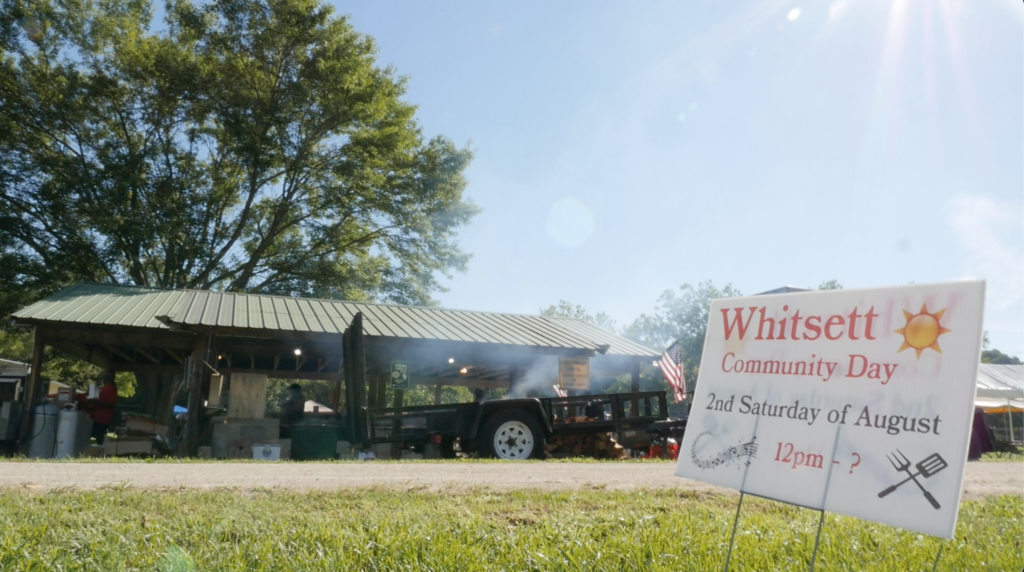
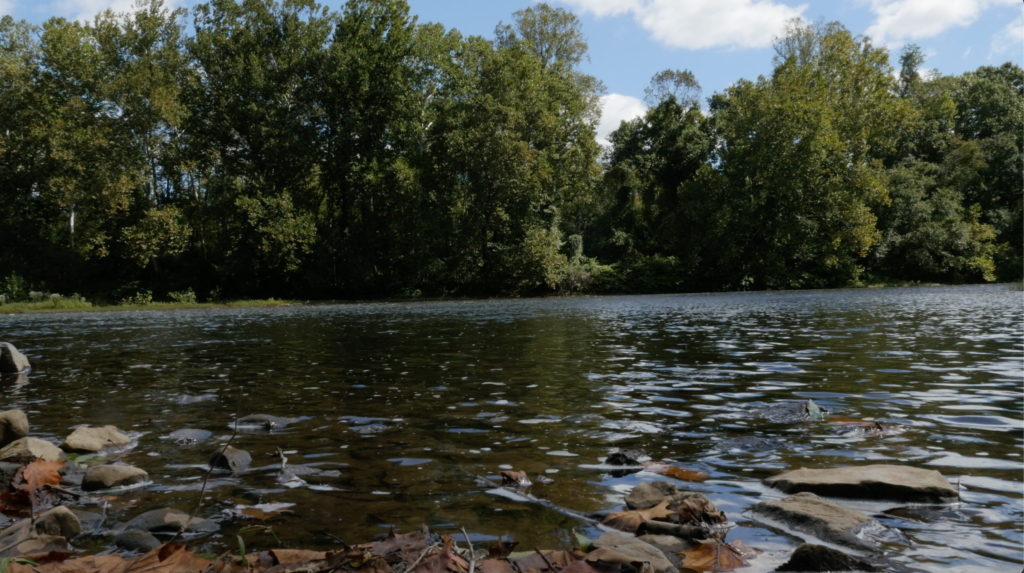
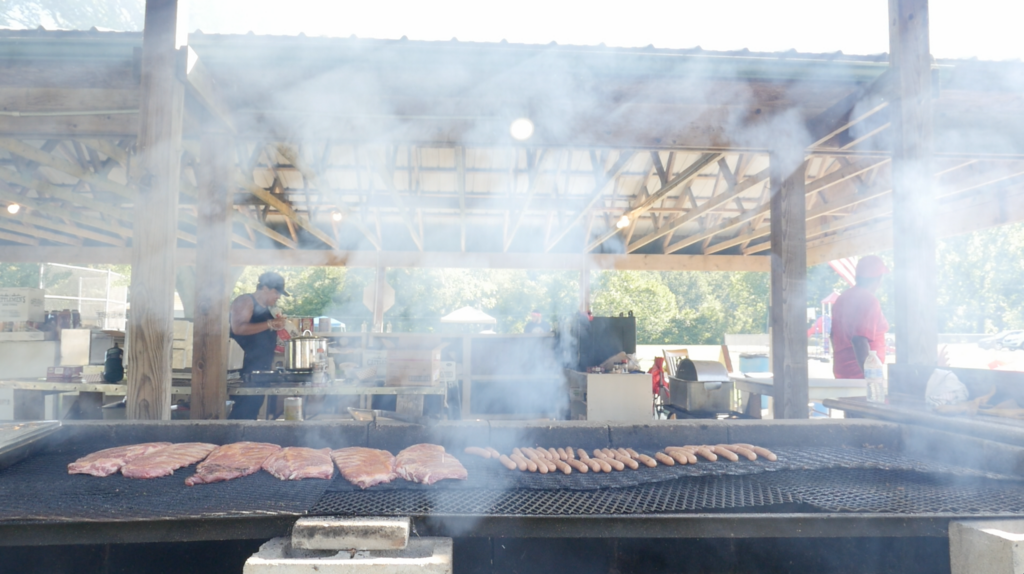
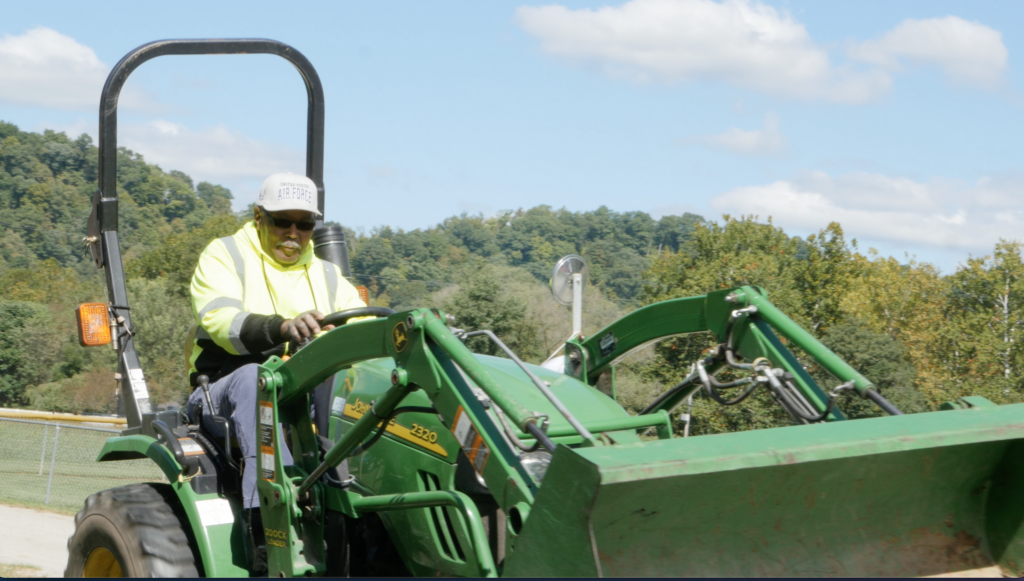
“I’m one of 14. My dad was a coal miner. He got a job in the Wickhaven Mine. And that’s where he was killed in 1948 with a slate cave-in. He left behind 10 children under the age of 15. So it was my mother from then on.
“When I moved back, an active rail was still there. There was no mention of a trail, but then a group formed. They thought that they could do a trail down to Cumberland. I’ve been a biker since I got out of the military in 1967 and when they started talking about the trail, it was a no brainer for me. Had to do it, had to help, had to make sure it got completed, you know, at all costs. And it’s paid off.
“The initial project called for clearing of the trail. It called for rebuilding the bridges that were taken out. It called for doing all the preliminary work. So we got involved from the very beginning. We borrowed welders, backhoes, dump trucks, anything that we could get that people would lend us.
“There’s a handful of volunteer trail chapters that take care of the Great Allegheny Passage from Downtown Pittsburgh to Cumberland. And we’re one of those. I got a group of guys that help me maintain it. When I have time, I cut a section and I have different nephews and whoever has time to do what they can do. We keep the tractor at my place. We got it through a grant. We have a written agreement that we did by resolution that the trail that runs through your community, you have an agreement you’ll help out and do whatever you can. There’s been no financial gain, but just to be recognized as a place of comfort and that you can feel good about stopping and sitting.”
“Whitsett Community Day, the organization was formed by Jeff Stunja. He’s the local historian who lives right in Whitsett. It started right around the time when the trail was coming through. Whitsett Community Day in its simplicity — it’s friends and family and neighbors getting together to eat and drink and greet each other. And that’s basically what it is. Come and let’s sit and talk. That’s basically what happens. People come back from all parts of the country.
“This is an artery to a greater environment. we’re a crossroads. I would say this about riding or walking this trail, the Great Allegheny Passage: keep your eyes open, keep looking, because there’s all kind of surprises along this trail. There are river beavers. My first encounter with a black bear was three years ago. Any imaginable thing you want to think about wildlife-wise, is there. And sometimes it’s so quiet. It’s so soothing. If you recorded the quietness you could sell it! Every mile, there’s something there that you may have never seen before in your life. And you may not ever see again. You can ride for five, six miles and run into nothing or nobody, or you can run into everybody and everything.”
This content was created by Anita Harnish for the Great Allegheny Passage Conservancy and financed through grants from the Pennsylvania Department of Conservation and Natural Resources’ Bureau of Recreation and Conservation, through its Community Conservation Partnerships Program and Environmental Stewardship Fund, administered by Rivers of Steel Heritage Area and Pennsylvania Environmental Council’s Laurel Highlands Mini Grant Program; through funding via the Westmoreland, Fayette, and Somerset County Tourism Grant Programs; and with funds made available by the Great Allegheny Passage Conservancy.
